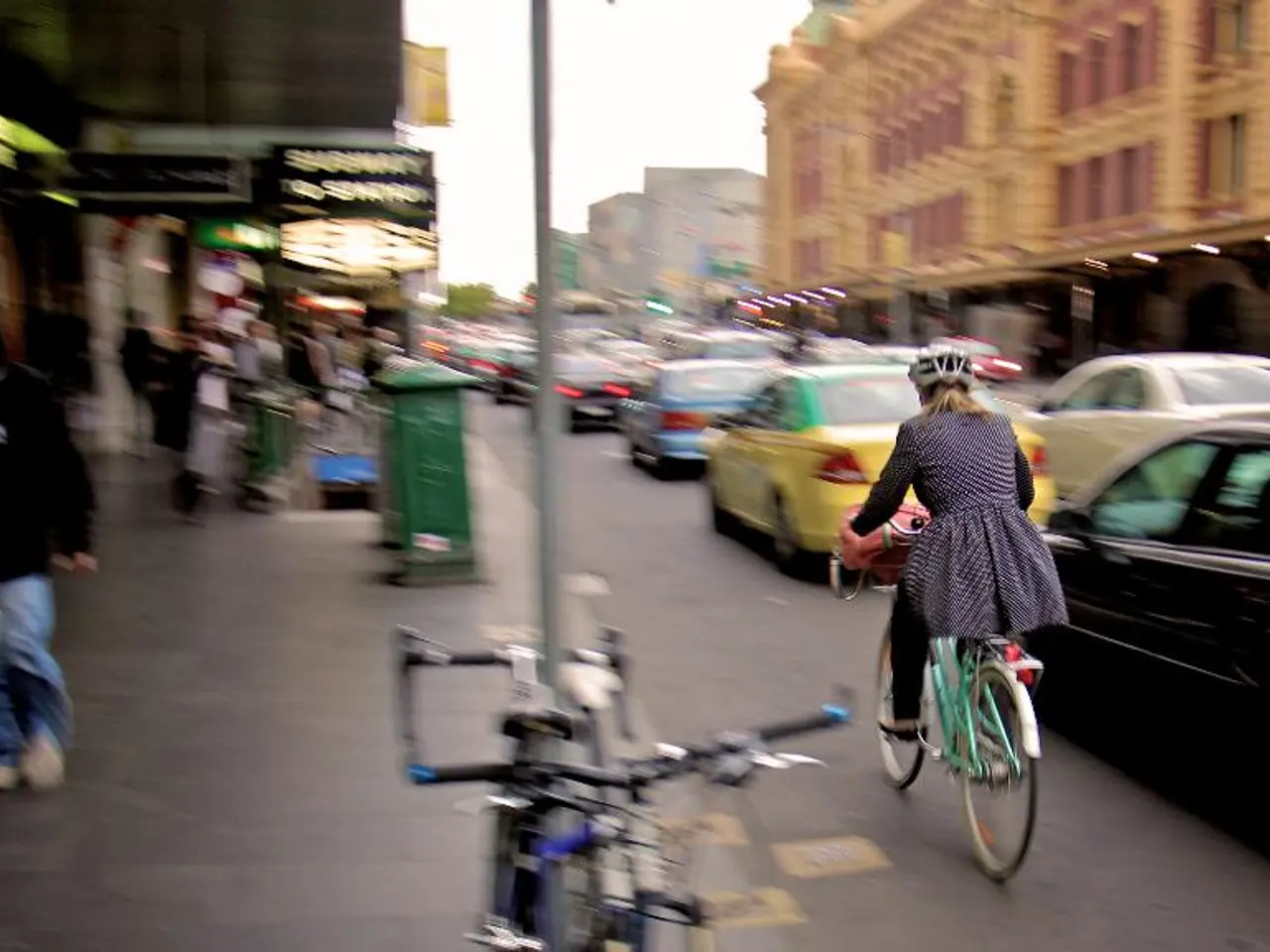Strategizing a Car Journey Across France
Embark on an adventure as you prepare for a road trip from the UK to France. This journey offers a unique blend of comfort, culture, and scenic beauty.
Recommended Routes
Your journey typically begins with crossing the English Channel via the Eurotunnel (Chunnel) or a ferry from Dover to Calais. From there, routes diverge across France, with options such as a scenic route to Spain passing through Paris, Orleans, Clermont-Ferrand, Millau, Beziers, and Perpignan, or a shorter trip to Paris, which takes about 4h 45m via the Chunnel or over 6h by ferry.
Travel Document Requirements
To enter France from the UK, you'll need a valid passport for all travelers, a valid driving license from the UK, a UK-issued car insurance policy that covers driving in France, a GB or UK sticker on your vehicle (if your number plate does not display "UK"), vehicle registration documents, and a "Crit'Air" air quality sticker may be required in certain low emission zones in French cities. As of 2025, an International Driving Permit is generally not required for UK license holders driving in France, but always verify the latest regulations before traveling.
Driving Rules to Be Aware Of
Remember to drive on the right-hand side in France. Seat belts are mandatory for all passengers, and the blood alcohol limit is 0.05%, lower than in the UK. Using mobile phones while driving is prohibited unless hands-free, and headlights must be used in poor visibility. Carry a warning triangle and reflective jacket in the car, and be aware that speed limits vary but typically 130 km/h on motorways, 80-90 km/h on highways, and 50 km/h in towns.
Essential Items to Pack
Pack your driving documents (license, insurance, registration, passport), safety equipment required by French law (warning triangle, reflective jacket), UK to France adaptors if using electrical devices, maps, GPS or a sat-nav programmed for France, snacks and water for long stretches, the European Health Insurance Card (EHIC) or its UK replacement, suitable clothing both for driving comfort and variable weather, emergency contact numbers including roadside assistance, and a rough schedule with some flexibility for spontaneous stops.
Accommodation Options
Choose from a variety of lodging options depending on your budget and preferences. Hotels, hostels, guesthouses, B&Bs, Airbnb, and camping or caravanning are all available, offering a range from luxury to budget options.
Enjoying Your French Road Trip
Planning your route carefully to include daily stops allows you to enjoy different regions and stay refreshed. Maintenance checks such as oil, coolant, tyre pressure, and ensuring breakdown cover and car insurance are in place help prevent issues. Popular scenic road trips include routes in the south of France and the Alpine regions.
Immerse yourself in local culture during your trip by visiting local markets, roadside bistros, off-the-beaten-path villages, vineyard tours, and sampling regional wines. Remember to factor in travel time as France is a large country, and be aware of low-emission zones in major cities.
In summary, start your trip via ferry or Eurotunnel, ensure all documentation and safety equipment are packed, follow French driving laws, and book accommodation along your chosen route. France offers a diverse landscape, charming villages, and a rich culture, making exploring it by car an unforgettable experience.
- To complement your road trip, consider adding scenic travel routes like those in the south of France and the Alpine regions, promising adventure and breathtaking views.
- For a genuine taste of French lifestyle and culture, plan visits to local markets, bistros, villages, vineyard tours, and regional wine tastings during your journey.
- If you appreciate the comforts of home while traveling, home-and-garden or home-improvement stores in France may offer similar products to those found in the UK.
- After a long day on the road, unwind in a variety of accommodations, such as hotels, hostels, guesthouses, B&Bs, Airbnb, or even camping or caravanning options that suit differing budgets and preferences.
- To create a seamless traveling experience, it's advisable to have essential items within reach, like car adapters and a European Health Insurance Card (EHIC) or its UK replacement, ensuring convenience and peace of mind along the way.





